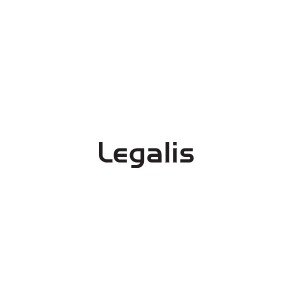Best Climate Change Law Lawyers in Norway
Share your needs with us, get contacted by law firms.
Free. Takes 2 min.
Or refine your search by selecting a city:
List of the best lawyers in Norway
About Climate Change Law in Norway
Climate Change Law in Norway refers to the legal framework that governs how individuals, businesses, and government entities interact with and address issues related to climate change. Norway is recognized as a global leader in environmental policy, with strong commitments to reducing greenhouse gas emissions, enhancing renewable energy initiatives, and promoting sustainable development. The country’s legal approach encompasses both international obligations and national legislation that set ambitious climate targets, regulate pollution, and encourage the transition to a low-carbon society.
Why You May Need a Lawyer
There are several reasons why someone may seek legal advice concerning Climate Change Law in Norway. Legal support may be necessary for:
- Challenging or complying with emission regulations for companies and industries
- Navigating requirements for permits related to environmentally impactful projects
- Defending against claims of environmental damage or pollution
- Pursuing government incentives for renewable energy or emission reduction technologies
- Understanding your rights or obligations under new climate legislation
- Developing or reviewing contracts to ensure compliance with climate requirements
- Participating in or objecting to climate change-related public consultations or policy proposals
- Bringing legal actions for climate-related harm (for individuals, NGOs, or local communities)
A lawyer specialized in this field can help interpret complex laws, ensure compliance, or represent you in disputes or negotiations.
Local Laws Overview
Climate Change Law in Norway is shaped by both domestic legislation and international commitments. Key aspects include:
- The Climate Change Act (2017) - This law sets binding targets for reducing greenhouse gas emissions by at least 40 percent by 2030 and to become a low-emission society by 2050.
- European Economic Area (EEA) regulations - Norway is part of the EEA, so several EU environmental policies apply regarding emissions trading and renewable energy goals.
- Pollution Control Act - Regulates emissions to air, water, and soil, including specific rules for permits and penalties for violations.
- Planning and Building Act - Ensures that environmental concerns and climate impacts are assessed in planning and construction projects.
- Nature Diversity Act - Protects biodiversity, which is closely linked to climate change adaptation.
- International treaties - Norway is a signatory to the Paris Agreement and other international accords committed to climate action.
These laws impact industries such as oil and gas, energy, transportation, and construction, as well as individuals and organizations engaging in environmental advocacy or sustainable innovation.
Frequently Asked Questions
What is the main climate law in Norway?
The Climate Change Act is the cornerstone climate legislation in Norway. It sets long-term targets for emission reductions and requires the government to report regularly on progress.
How does Norway regulate carbon emissions?
Norway uses a combination of carbon taxes, a national emissions trading scheme integrated with the EU system, and regulatory standards. Many industries require emission permits and must adhere to annual caps.
Are companies legally required to report their emissions?
Yes, certain companies in sectors such as energy, transport, and industry must report their emissions to Norwegian environment authorities and comply with disclosure rules.
Can individuals be fined for violating climate-related laws?
While most regulations target companies and larger polluters, individuals can face fines for violations such as illegal dumping, unauthorized emissions, or improper waste management in some circumstances.
What incentives exist for renewable energy projects?
There are various subsidies, tax benefits, and grants available for renewable energy production, energy efficiency improvements, and research on climate solutions.
Is Norway obligated to meet international climate targets?
Yes, as a party to the Paris Agreement and several other treaties, Norway has legally binding international commitments to reduce greenhouse gas emissions and report progress.
Can communities take legal action for climate-related harm?
Yes, Norwegian law allows individuals, interest groups, and local communities to challenge governmental or private activities that may cause significant environmental or climate harm.
How does climate law affect construction projects?
All major construction projects must include climate risk assessments and comply with environmental standards as part of their planning and permitting process.
What role do municipalities play in climate law?
Municipalities are required to integrate emission reduction and climate adaptation goals into their local planning and can implement stricter measures than national standards if justified.
Do climate laws grant access to environmental information?
Yes, Norwegian law supports the public's right to access information about environmental issues, decision-making processes, and potential climate impacts.
Additional Resources
If you are looking for further information or assistance, these resources can be helpful:
- Norwegian Ministry of Climate and Environment - The main governmental body overseeing climate policy and regulation
- The Norwegian Environment Agency - Implements climate law, manages emissions reporting, and oversees compliance
- Norwegian Bar Association - Helps locate qualified lawyers with expertise in climate and environmental law
- Framtiden i våre hender and Naturvernforbundet - Leading NGOs advocating for climate action in Norway
- EEA and EU Environment Portal - Provides updates on regulatory changes that impact Norway as part of the EEA
Next Steps
If you require legal advice about Climate Change Law in Norway, it is recommended to take the following steps:
- Identify your specific issue or concern relating to climate law, such as compliance, permits, or disputes
- Collect all relevant documents, correspondence, and information you may need to explain your situation
- Contact a lawyer or legal specialist who has experience with Norwegian environmental and climate law
- Consider reaching out to local government agencies or NGOs for preliminary guidance on your issue
- Prepare a list of questions or goals to discuss during your consultation with a legal professional
Taking these steps ensures you are well-prepared to receive informed and effective legal assistance in the rapidly evolving field of Climate Change Law in Norway.
Lawzana helps you find the best lawyers and law firms in Norway through a curated and pre-screened list of qualified legal professionals. Our platform offers rankings and detailed profiles of attorneys and law firms, allowing you to compare based on practice areas, including Climate Change Law, experience, and client feedback.
Each profile includes a description of the firm's areas of practice, client reviews, team members and partners, year of establishment, spoken languages, office locations, contact information, social media presence, and any published articles or resources. Most firms on our platform speak English and are experienced in both local and international legal matters.
Get a quote from top-rated law firms in Norway — quickly, securely, and without unnecessary hassle.
Disclaimer:
The information provided on this page is for general informational purposes only and does not constitute legal advice. While we strive to ensure the accuracy and relevance of the content, legal information may change over time, and interpretations of the law can vary. You should always consult with a qualified legal professional for advice specific to your situation.
We disclaim all liability for actions taken or not taken based on the content of this page. If you believe any information is incorrect or outdated, please contact us, and we will review and update it where appropriate.
Browse climate change law law firms by city in Norway
Refine your search by selecting a city.















